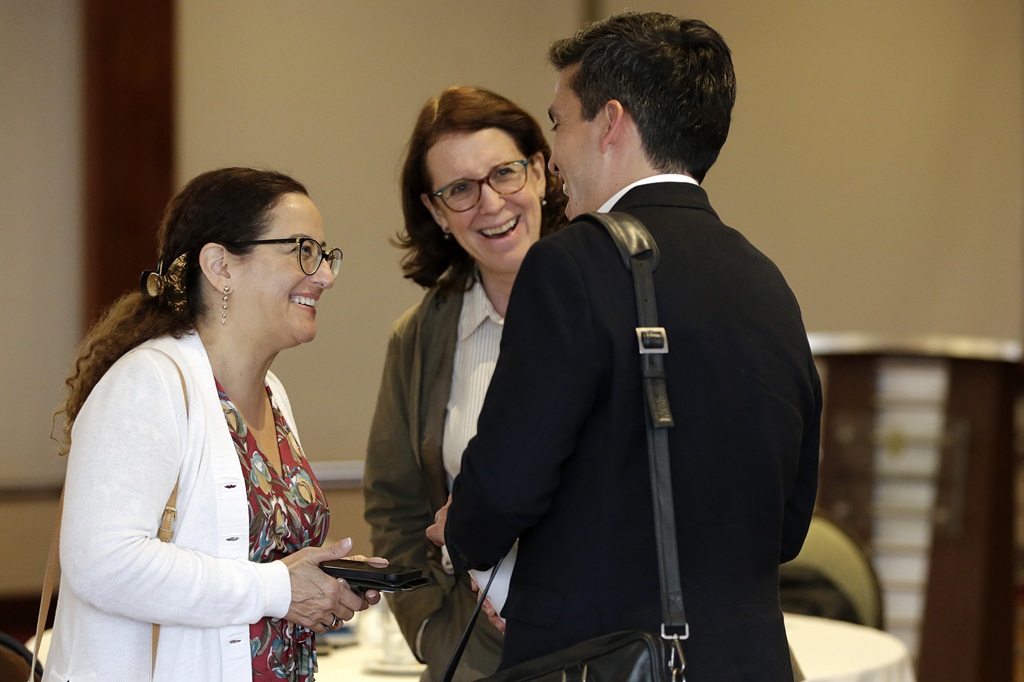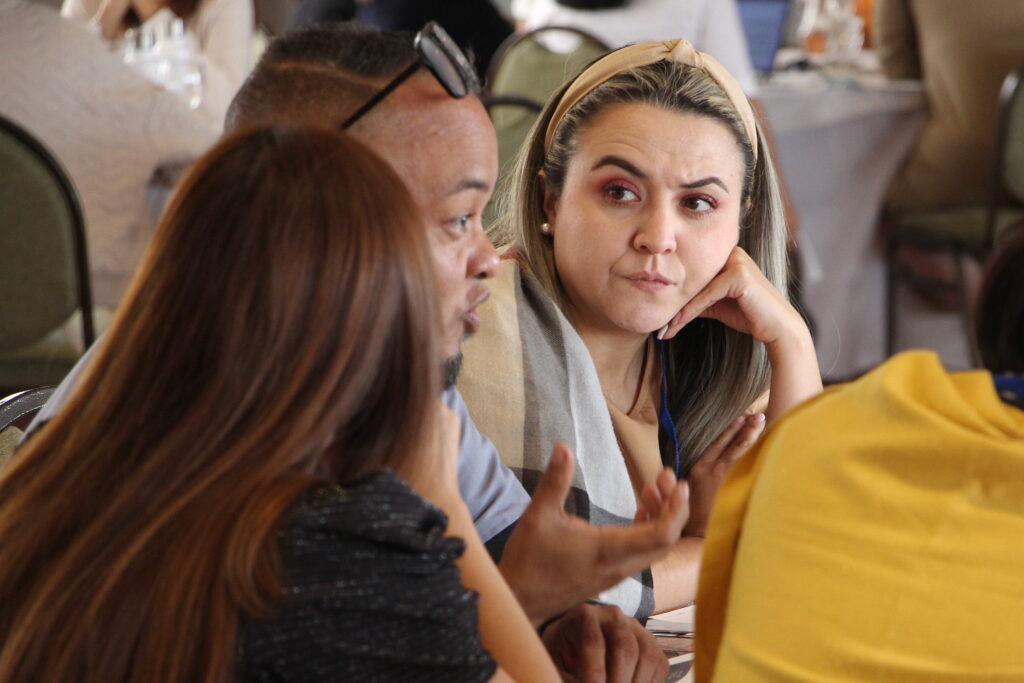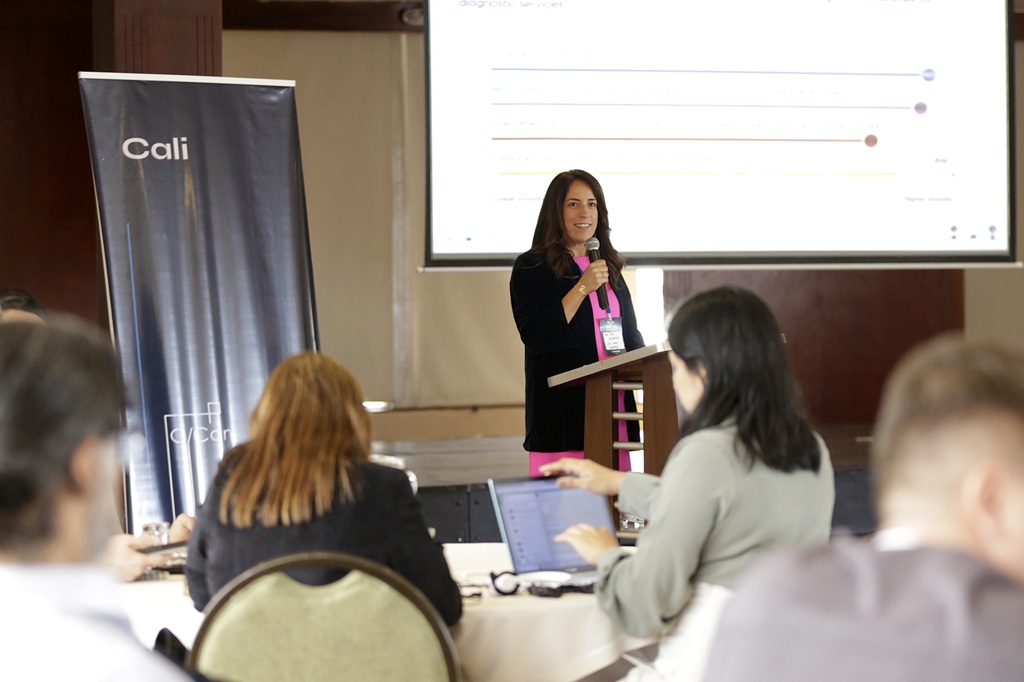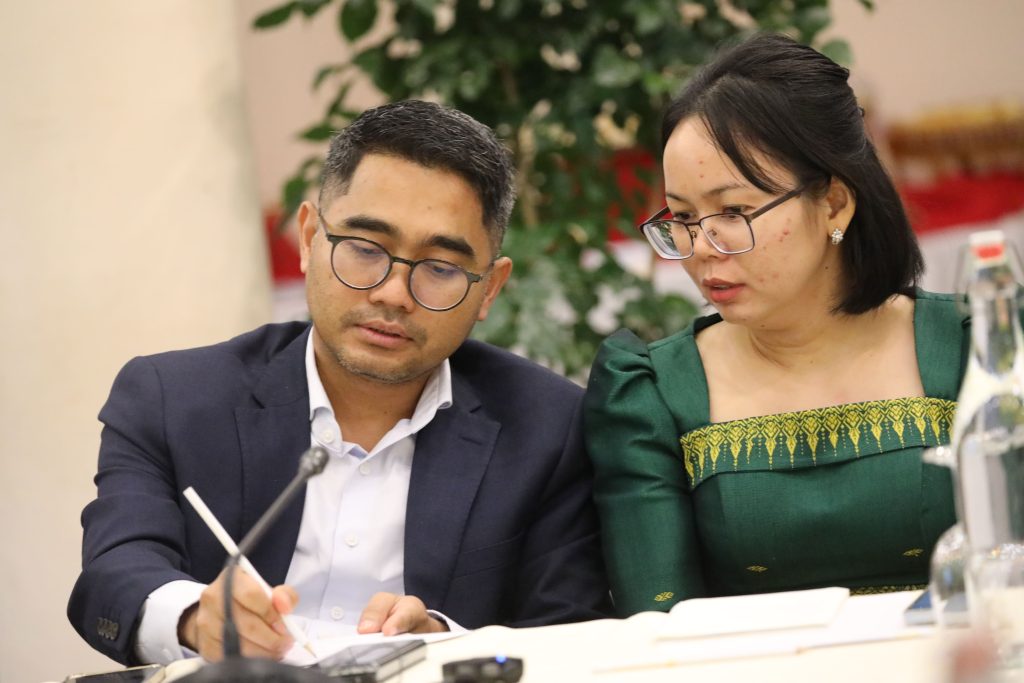
In May 2023, the World Health Organization (WHO) and City Cancer Challenge (C/Can) announced their partnership for the implementation of the WHO Global Breast Cancer Initiative (GBCI) Framework. Launched in 2021, the GBCI sets an ambitious target: a 2.5% annual reduction in global breast cancer mortality, potentially saving 2.5 million lives by 2040.
Recognising that investing in women’s health is one of the highest‑yield social and economic returns – a key message of the recent C/Can WHA side‑event on Unlocking the Value of Women and Health – the partnership reframes breast‑cancer control as a public‑value opportunity rather than a cost to be contained. By improving the health of women, entire households, communities and local economies benefit.
The GBCI Framework is built around three critical pillars along the patient care pathway: early detection, timely diagnosis, and comprehensive breast cancer management. It offers evidence-based, resource-adaptable, sustainable strategies designed to strengthen health systems and reduce inequalities in cancer care, especially in low- and middle-income countries (LMICs).

Bridging Global Strategy with Local Action
The WHO-C/Can collaboration brings together WHO’s global leadership and C/Can’s ground‑up, city‑by‑city implementation model, transforming abstract norms into real‑world impact and change. It also draws on the collective strengths of other UN agencies, including the International Atomic Energy Agency (IAEA) and the International Agency for Research on Cancer (IARC), along with private sector’s partners Amgen, AstraZeneca, Bristol Myers Squibb and MSD.
This collaboration is supported by a bold and forward-looking partnership model that pushes traditional boundaries. By bringing together organisations with diverse mandates, capabilities, and perspectives within cities, this collaboration demonstrates the immense value of cross-sector engagement in advancing equitable cancer care that can be adapted and scaled up nationally.
This collaboration represents a truly transformative moment in global cancer control, marking a decisive break from the ineffective “vertical” and siloed interventions that have historically plagued global health efforts. Research consistently shows that narrowly focused programmes often fail to achieve lasting change, as they divert resources and overlook the broader health system context. In contrast, the WHO–C/Can Initiative embodies a new model of action: one that bridges global standards and country realities, combining WHO’s technical leadership and normative power with C/Can’s implementation capacity across diverse urban settings.

Progress Across Cities: From Workshops to Action Plans
Four cities, Tbilisi (Georgia), Kumasi (Ghana), Cali (Colombia), and Phnom Penh (Cambodia), were selected to implement the GBCI Framework as part of its initial rollout. Through local partnerships and technical workshops, the initiative is aligning city-level cancer services with international standards and creating blueprints for system-wide change.
Three of the four cities (Tbilisi, Kumasi, and Cali) have already hosted their GBCI implementation workshops. These gatherings have equipped over 150 healthcare professionals with the knowledge and tools to improve early detection, streamline diagnostic pathways, and strengthen treatment services:
- Tbilisi has secured in‑hospital pharmacies for essential oncology medicines.
- Kumasi has enrolled 36 primary‑care facilities in an outreach and training programme that will accelerate referrals and shift diagnosis to earlier stages.
- Cali has integrated BCAP recommendations into Colombia’s Emergency Plan for Cancer, clarifying institutional roles and measurable indicators.
By anchoring implementation in cities, the partnership creates living laboratories where global frameworks—such as the WHO Global Breast Cancer Initiative—are translated into locally-driven action plans. Each city has developed a Breast Cancer Action Plan (BCAP), a locally-owned roadmap with clearly defined, measurable interventions. These BCAPs are being used to guide targeted improvements, from referral systems to treatment access, ensuring that local priorities drive change.
These plans respond directly to system gaps, enabling concrete interventions and impact measurement aligned with national and global KPIs. It is a diagonal, integrated approach, combining top-down vision with bottom-up relevance, grounded in the belief that solutions must be globally credible, context-appropriate and locally owned.

Translating Local Innovation into National Policy
What sets this initiative apart is its ambition to bridge city-level innovation with national policy. Policy dialogues are underway in Georgia and Ghana to integrate BCAP recommendations into national cancer control plans and other relevant policies. The goal is to scale successful interventions nationally and institutionalise breast cancer within health systems to achieve improvements in breast cancer care.
In Cali, Colombia, the BCAP includes national-level recommendations and is informing the Emergency Plan for Cancer. It outlines institutional responsibilities, indicators for progress, and coordination across national stakeholders like the Pan American Health Organisation (PAHO), the Ministry of Health, and the National Cancer Institute. This city‑to‑country pathway exemplifies how locally‑generated solutions can influence national Universal Health Coverage (UHC) commitments.
What’s Next: From Planning to Action
Looking at the coming 12 months and beyond, the partnership will:
- Finalise a methodology package, comprising the Guide on how to implement the GBCI in practice and a Generic Breast Cancer Action Plan (BCAP) for adaptation and use in other cities,
- Train 150 primary‑care doctors in Tbilisi to recognise early symptoms of the disease and enable earlier cancer diagnosis,
- Handover Cali’s BCAP to Colombia’s Ministry of Health,
- Execute the Phnom Penh workshop and consolidate lessons learned,
- Co-develop the Phnom Penh BCAP,
- Handover Phnom Penh BCAP to Cambodia’s Ministry of Health,
- Deepen its engagement with national authorities and private innovators to ensure sustainability and scalability.
This first phase of the GBCI demonstrates what is possible when global standards meet locally‑owned action. Together with governments, industry, civil‑society organisations and women living with cancer, WHO and C/Can are committed to turning momentum into lasting change, so that more women, wherever they live, have timely access to the quality breast‑cancer care they deserve.





